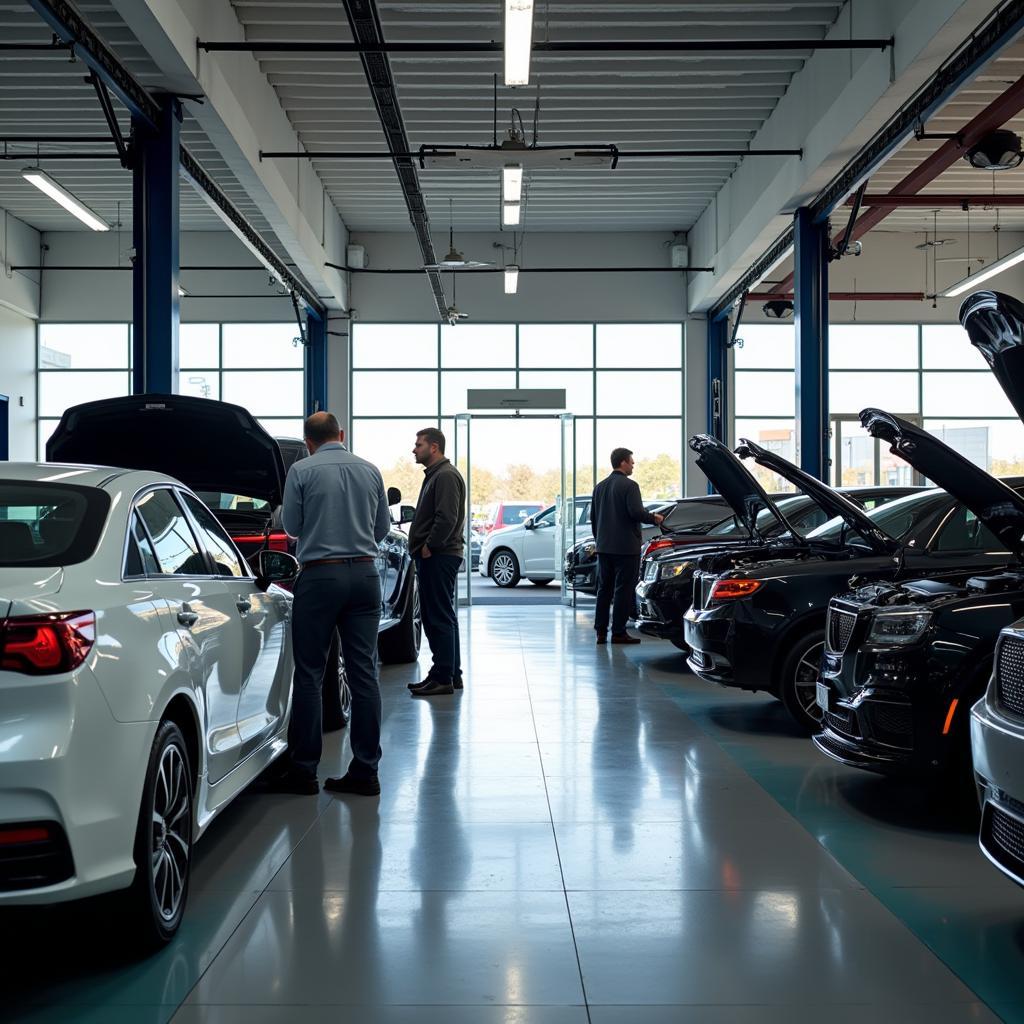Selling a car with a laundry list of issues can feel like a Herculean task. Many people wonder, Do Car Dealerships Accept Old Cars With Lots Of Problems? The short answer is: sometimes. Let’s dive into the details of offloading your problematic vehicle and explore whether a dealership is the right avenue for you.
Understanding Dealership Motivations
Dealerships are primarily in the business of selling cars, not inheriting headaches. They will consider factors like the car’s make, model, year, and the extent of the problems. Minor issues like a worn-out battery or a small dent are usually manageable. However, major mechanical problems, frame damage, or a salvaged title significantly decrease a car’s value and attractiveness to a dealership.
What Problems are Dealership Deal Breakers?
Certain problems are almost guaranteed to make a dealership turn away your car. These include:
- Frame damage: A compromised frame poses safety risks and is costly to repair.
- Flood damage: Water damage can lead to electrical problems, corrosion, and mold, making the car a risky investment.
- Salvaged title: A salvaged title indicates the car was declared a total loss by an insurance company, usually due to significant damage.
- Major mechanical issues: Extensive engine or transmission problems can be expensive to fix, making the car less profitable for the dealership.
 Car Dealership Service Center
Car Dealership Service Center
How to Increase Your Chances of Selling a Problematic Car to a Dealership
Even if your car has some problems, you can still increase your chances of a dealership accepting it. Here’s how:
- Be Honest: Disclosing all known problems upfront builds trust and avoids surprises later.
- Gather Documentation: Service records and maintenance history demonstrate how well you’ve cared for the vehicle.
- Set Realistic Expectations: Don’t expect top dollar for a car with multiple issues. Research the market value of similar cars in good condition and adjust your price accordingly.
- Consider a Trade-In: Even if the dealership doesn’t want to buy your car outright, they may accept it as a trade-in towards a newer vehicle. This can be a convenient way to get rid of your old car and upgrade at the same time. You may even be able to negotiate car dealerships no credit no problem if you’re considering financing.
- Negotiate on Price: Be prepared to negotiate on the price. Remember, the dealership will factor in the cost of repairs when making an offer.
“Transparency is key,” says John Davis, a seasoned automotive technician with over 20 years of experience. “Being upfront about the car’s issues allows the dealership to accurately assess its value and potentially save everyone time and hassle.”
Exploring Alternatives to Dealerships
If dealerships aren’t an option, consider these alternatives:
- Private Sale: Selling your car privately can yield a higher price, but requires more effort and comes with associated risks.
- Scrap Yards: For cars with significant damage or mechanical problems, a scrap yard may be the best option.
- Online Car Buying Services: Several online platforms specialize in buying used cars, regardless of their condition.
Do Car Dealerships Accept Old Cars With Lots of Problems? A Final Word
While dealerships may accept old cars with some problems, they are unlikely to buy vehicles with major issues. Being honest, setting realistic expectations, and exploring alternative selling avenues can help you find the best solution for offloading your problematic vehicle. Remember to do your research, understand the market, and negotiate effectively to maximize your return. If you have any further questions, feel free to contact us at AutoTipPro, at +1 (641) 206-8880. Our office is located at 500 N St Mary’s St, San Antonio, TX 78205, United States.
“Ultimately,” adds Sarah Miller, an automotive sales consultant, “finding the right buyer for a problematic car depends on the severity of the issues and the seller’s willingness to negotiate realistically.”
FAQ
- Can I sell a car with a blown engine to a dealership? It’s unlikely, but some dealerships might accept it as a trade-in for a significantly lower value.
- What paperwork do I need to sell my car to a dealership? Typically, you’ll need the title, registration, and any maintenance records.
- How can I determine the fair market value of my car with problems? Online valuation tools and consulting with a mechanic can help you determine a realistic price.
- Is it better to fix the problems before selling to a dealership? Minor repairs might increase the value, but major repairs might not be cost-effective.
- What if the dealership offers a price lower than I expected? Negotiate! Be prepared to walk away if you can’t agree on a fair price.
- Can I sell a car without a title to a dealership? Most dealerships require a clear title.
- Are there any alternatives to selling to a dealership or private buyer? Yes, consider scrap yards or online car buying services.




Leave a Reply